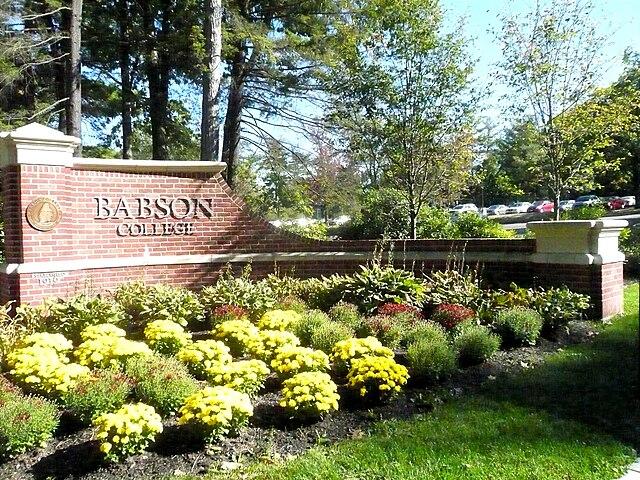One of the funniest Halloween costumes I have seen at Wellesley is credited to an Olin student in one of my political science courses. At first glance, he seemed to have just dressed as a slightly more pretentious version of himself. However, he quickly revealed to the class he was dressed as a Babson student. As Wellesley students, it was very easy to have a friendly laugh at Babson students, with their “Babson Fridays” and their “networking”. However, it may seem they have had the last laugh. The Wall Street Journal (WSJ) recently ranked Babson as the 2nd best university in the country. While Babson has frequently been highly ranked as a business school, this is the first time their name has graced the top of the general college rankings. This massive boost in ranking seems to particularly sting for Wellesley students, as the college fell out of the top five liberal arts colleges for the first time in the past 10 years in US News rankings.
The sudden change in Babson’s ranking also draws attention to the seemingly subjective standards by which we rank. Babson, which is unranked by US News as a national university, managed to surpass the widely recognized Top three schools such as Harvard and MIT. While The Journal’s rankings are perhaps not as famous as the US News rankings, its popularity in part emerged from a desire for changing methodology. Notably, unlike the US News Ranking, WSJ uses only data that is publicly available for the schools they evaluate. This arose after the controversy surrounding Columbia’s falsified reporting of relevant statistical information to US News in order to inflate their own ranking.
WSJ primarily ranks schools based on student outcomes. Specifically, they are evaluating how well schools boost students’ projected earnings, based on incoming students’ financial backgrounds. This brings us back to Babson. Knowing that the WSJ’s methodology is primarily rooted in economic outcome, it is somewhat unsurprising that a small business school, entirely focused on educating its students in professional fields, is incredibly successful. However, it begs the question; why do we rank colleges in this way? While economic mobility is undoubtedly important, these rankings seem to argue the only reason a college is worth attending is if it helps you achieve higher-paying employment outcomes.
This is neither the first nor the last time the methodology of college rankings will be called into question. When some schools have famously based their entire philosophy on appealing to rankings, it begs the question why bother having rankings at all. Now, I think some rankings are genuinely helpful to know. For example, rankings regarding school culture may offer incredibly valuable information to students unable to travel to visit their dream schools. Additionally, when done correctly, it is entirely possible that rankings can be a means of elevating excellent colleges that are traditionally undervalued due to a lack of historic prestige.
The Wall Street Journal’s calculation methods aren’t inherently flawed. While they place a massive emphasis on economic outcomes, some of their metrics, such as years to pay off debt, can offer great insight to potential students. However, The Wall Street Journal’s score significantly devalues a school’s diversity and learning environment, which account for 10% and 20% of a school’s score respectively. Most metrics are also always in flux. Some US News rankings are still influenced by test scores, and US News has stopped evaluating first-generation success and has opted to favor performance of students on Federal Pell Grants. The sheer variety of indicators used by various ranking institutions, demonstrate what makes a “great school” is subjective.
I am not here to debate the best set of metrics to universally evaluate all universities and colleges for all students. In fact, I find general college rankings incredibly unproductive; offering future students minimal information and creating unnecessary anxiety. I am confident most Wellesley students are deeply familiar with the pressure to attend a school that is respectable, a standard that has come to mean “high enough” ranked. Rankings are becoming guides not just on the best schools, but on what students should value. If the most influential factor in a school’s ranking is their students’ economic outcomes, the brightest students are told they are best served to become businessmen and accountants. While we need great entrepreneurs, we also need great teachers, scientists, community organizers, and doctors. My greatest advice to future college applicants is to look beyond the rankings. Use publicly available information, such as the common data set, and make your own evaluation about what schools may be right for you. I am not saying that Babson isn’t a great school full of promising students. However, in my opinion, Babsons’ ranking as a Top two school provides a compelling case for everything that is wrong with college rankings.
Contact the editor(s) responsible for this story: Caitlin Donovan




